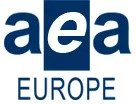In a comprehensive interview, Prof. Frank Ventura provides an in-depth look at the evolution of Malta’s Matriculation and Secondary Education Certificate (MATSEC) system, a national educational framework of examinations that has undergone significant changes over the past three decades.
Prof. Ventura has had a distinguished career in education, starting as a primary and post-secondary teacher before joining the Department of Educational Studies at the Malta College of Arts Science and Technology and later the Faculty of Education at the University of Malta. He played a pivotal role in designing and teaching the science education course and later headed the department of Mathematics, Science and Technical Education of the university. In 1988, he was instrumental in setting up two national examination systems to replace the GCE examinations, leading to his appointment as the Chairman of the MATSEC Examinations Board in 2001. Throughout his career, Ventura has contributed to numerous publications on science education, environmental education, educational assessment, and on his lifelong interest in astronomy in culture.
The MATSEC system was initially established to replace the English A-Level and O-Level examinations, which were seen as inadequate for the Maltese context. The new system aimed to be more inclusive, covering a broader range of subjects and catering to a wider student demographic.
Prof. Ventura outlines the initial challenges faced in setting up the MATSEC system, including scepticism from various stakeholders about whether a small country like Malta could manage such a complex examination framework. Despite these challenges, the system was successfully implemented, with the first examinations comparable to O-Levels taking place in 1994. The MATSEC system introduced tiered papers to cater to students of different abilities and included coursework in several subjects to provide a more holistic assessment. The Matriculation Certificate system that replaced the GCE A-Levels was launched in 1997. Over time, the system expanded to include more than 30 subjects at both advanced and intermediate levels.
One significant innovation was the introduction of “Systems of Knowledge,” an interdisciplinary subject designed to give students a balanced education in both the sciences and humanities. This subject aimed to address the narrow focus of the previous A-Level system, which often led students to specialize too early. The MATSEC system also introduced a point-based grading system, allowing for greater flexibility in university admissions.
Despite its successes, the system has not been without its challenges. Prof. Ventura discusses the administrative workload, the need for more personnel, and the occasional controversies, such as claims of leaked examination papers. However, these issues were addressed through periodic reviews and evaluations, including one comprehensive evaluation in 2005 that involved multiple stakeholders and international experts.
In 2014, the MATSEC system expanded to include vocational subjects, in collaboration with the Malta College for Arts, Science, and Technology (MCAST). These subjects were initially assessed solely through coursework, but a written examination component was later added to align with university admission requirements. The system also introduced “Secondary Education Applied Exam Certificates” (SEAC) in 2018 to cater to a small percentage of students not covered by the existing framework.
Looking ahead, Prof. Ventura reveals that significant changes are on the horizon, driven by the National Curriculum Framework of 2012. The new approach will focus on learning outcomes and will introduce coursework or practical work in all subjects, carrying a weight of 30% in assessments. While some teachers are already familiar with coursework, for many, this will be a new experience, adding another layer of complexity to the educational landscape.
In summary, Prof. Ventura’s account offers a rich narrative of the MATSEC system’s journey, from its inception to its on-going evolution. Despite initial scepticism and challenges, the system has proven to be robust and adaptable, covering a broader range of subjects and catering to a wider student demographic. The system has undergone periodic reviews to ensure its relevance and effectiveness, and it continues to evolve, with significant changes planned for the next academic year. These changes aim to align the system more closely with modern educational philosophies, focusing on learning outcomes and incorporating more coursework into assessments.
In summary, Prof. Ventura’s account offers a rich narrative of the MATSEC system’s journey, from its inception to its on-going evolution. Despite initial scepticism and challenges, the system has proven to be robust and adaptable, covering a broader range of subjects and catering to a wider student demographic. The system has undergone periodic reviews to ensure its relevance and effectiveness, and it continues to evolve, with significant changes planned for the next academic year. These changes aim to align the system more closely with modern educational philosophies, focusing on learning outcomes and incorporating more coursework into assessments.

